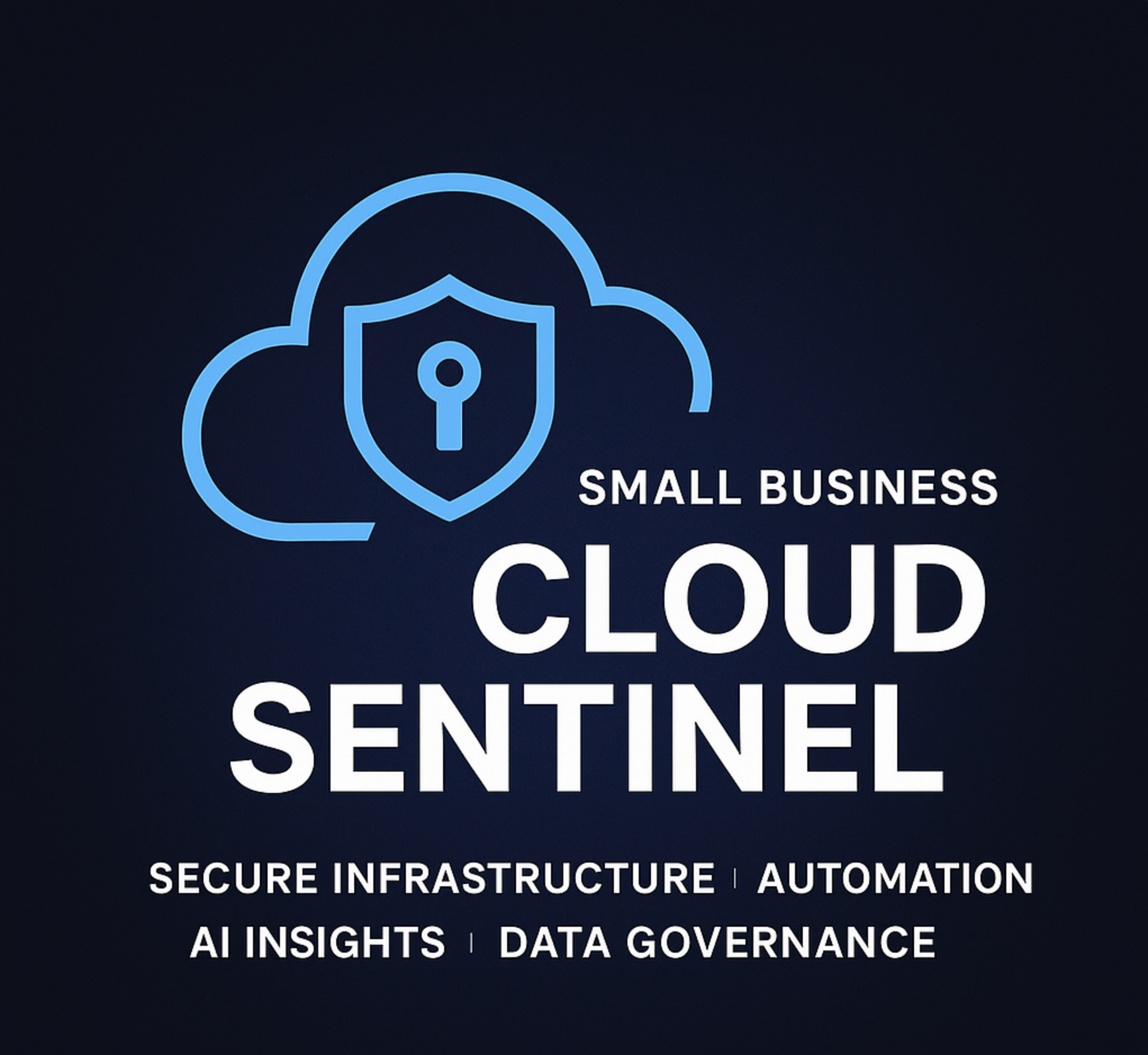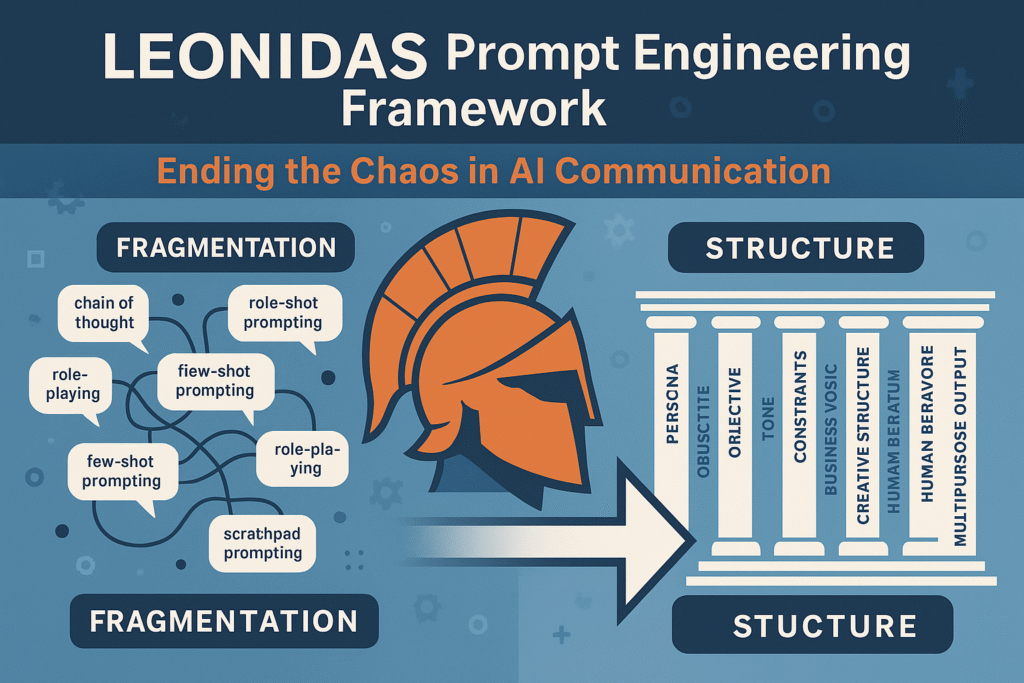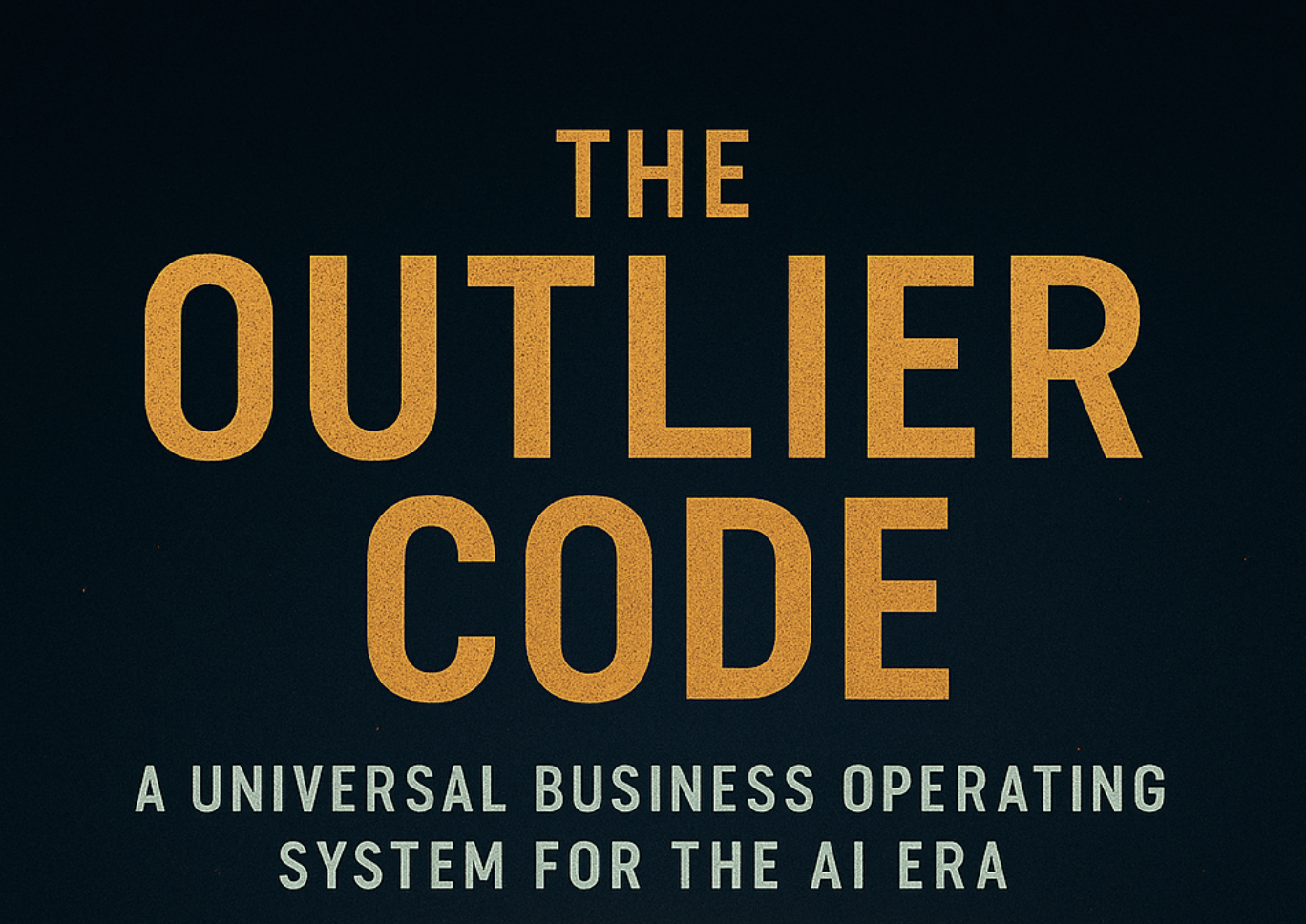SMALL BUSINESS CLOUD SENTINEL™
A Unified Framework for Secure, Intelligent, and Autonomous Operations in the Cloud Era
Overview
SMALL BUSINESS CLOUD SENTINEL™ is a next-generation cloud operations and security framework designed to give small and medium-sized businesses (SMBs) enterprise-level resilience, automation, and intelligence—without enterprise-level complexity or cost.
Built on five integrated layers—Sentinel Fabric, Sentinel Shield, Sentinel Mesh, Sentinel Insight, and Sentinel Nexus—the system unifies cloud infrastructure, cybersecurity, automation, and AI-driven analytics into a single, self-healing operational environment.
The result: a business that is faster, safer, and smarter — capable of autonomous optimization, predictive defense, and seamless scaling across multi-cloud or hybrid infrastructures.
Core Value Proposition
- Enterprise-grade intelligence at SMB scale
- Zero Trust security with Confidential Computing and identity enforcement
- AI-driven operational automation that self-heals, predicts, and prevents downtime
- Full Infrastructure-as-Code (IaC) provisioning with GitOps governance
- Cross-cloud mobility — deploy seamlessly on AWS, Azure, or Google Cloud
- Immediate cost optimization through multi-cloud arbitrage and predictive resource scaling
Five Foundational Pillars
1.
Sentinel Fabric — The Hybrid Cloud Foundation
A multi-cloud orchestration layer that provides:
- Automated provisioning via Terraform and Kubernetes (EKS, AKS, GKE)
- Edge integration for IoT and offline resilience
- Intelligent load balancing and failover for 99.9% uptime
- GitOps-based lifecycle management for consistent deployments
Outcome: A portable, cloud-agnostic infrastructure that eliminates vendor lock-in while maximizing uptime and performance.
2.
Sentinel Shield — Zero Trust Security & Confidential Computing
Implements continuous verification of users, devices, and processes using:
- Zero Trust identity and access enforcement
- Multi-factor authentication (MFA) with JWT tokenization
- Open Policy Agent (OPA) and Cloud Security Posture Management (CSPM)
- Confidential Computing that encrypts data even while in use (Intel SGX / AMD SEV)
Outcome: A continuously adaptive defense system that ensures data integrity, compliance (SOC2, ISO 27001, HIPAA), and protection from insider and external threats.
3.
Sentinel Mesh — Automation & Workflow Orchestration
The automation engine that transforms manual operations into self-regulating workflows:
- Event-driven architecture (NATS Streaming)
- Low-code automation via n8n or Step Functions
- Incident response playbooks that isolate threats, trigger containment, and auto-document remediation
- Human-in-the-loop governance for critical workflows
Outcome: A 75% reduction in human intervention and up to 60% faster incident response time.
4.
Sentinel Insight — AI-Driven Observability & Predictive Analytics
Machine learning (ML) powers intelligent decision-making:
- Anomaly detection models trained via Isolation Forest & Kubeflow
- Prometheus + Grafana observability stack for live performance scoring
- AIOps-driven capacity forecasting with predictive resource recommendations
- Autonomous incident response engine that resolves and documents events
Outcome: Predictive maintenance, proactive resource scaling, and prevention of 90% of potential outages before they occur.
5.
Sentinel Nexus — Unified Data Mesh & Governance
A data management and intelligence layer providing:
- Kafka-powered data mesh and schema registry
- Dynamic data cataloging and lineage tracking for compliance and audit readiness
- Unified observability dashboards showing real-time system health, cost savings, and automation success rate
- Governance automation with policy-as-code
Outcome: Centralized visibility and control across every business system, data stream, and compliance boundary.
Technical Foundation
- Infrastructure as Code (Terraform, Ansible, Helm)
- Containerization (Docker, Kubernetes, Istio Service Mesh)
- Multi-cloud support (AWS / Azure / GCP)
- Edge readiness (K3s / IoT Gateway integration)
- AI/ML orchestration (Kubeflow, Scikit-learn)
- Security stack (OPA, Vault, SGX, MFA, IAM)
- Monitoring & AIOps (Prometheus, Grafana, Alertmanager)
Deployment Time: 3–6 weeks
Scalability: 50–500 users (expandable to 2,000+)
Automation Coverage: Up to 80% of IT operations
Performance Metrics
| Metric | Result | Benefit |
|---|---|---|
| System Uptime | 99.9% | Continuous business operations |
| Security Response Time | 75% faster | Automated Zero Trust enforcement |
| Operational Cost Savings | 60% | AI-driven optimization |
| Compliance Readiness | SOC 2, ISO 27001, HIPAA | Built-in policy automation |
| Manual IT Workload Reduction | 80% | Self-healing infrastructure |
Target Market
Ideal Clients:
- Small & medium-sized enterprises (10–500 employees)
- Businesses handling regulated or sensitive data (Finance, Healthcare, SaaS, E-Commerce)
- Companies modernizing legacy IT or migrating to hybrid/multi-cloud environments
Business Impact
- Operational Intelligence: Real-time AI recommendations for resource allocation, risk reduction, and optimization.
- Resilience: Built-in failover, backup, and redundancy ensure continuous operations.
- Autonomy: Once deployed, the system continuously learns and adjusts itself, reducing the need for IT staff intervention.
- Scalability: Expand seamlessly across new regions or platforms without architectural rework.
Key Differentiators
| Traditional MSP | SMALL BUSINESS CLOUD SENTINEL™ |
|---|---|
| Reactive support | Predictive AIOps prevention |
| Fragmented tools | Fully integrated ecosystem |
| Manual scaling | Automated, self-optimizing |
| Perimeter security | Zero Trust + Confidential Computing |
| Siloed monitoring | Unified AI observability |
| Compliance checklists | Continuous compliance assurance |
Get Detailed Pricing
SMALL BUSINESS CLOUD SENTINEL™ isn’t a tool — it’s a complete operational intelligence framework.
It equips SMBs with the same resilience, security, and AI-powered automation once reserved for Fortune 500 enterprises, in a package that installs, scales, and self-optimizes effortlessly.
Result: A truly autonomous small business cloud — intelligent, compliant, secure, and built to evolve.


